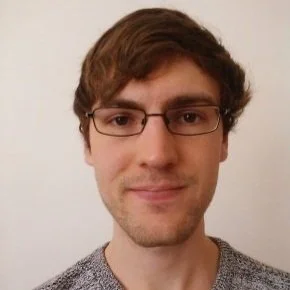Graeme Flower
At a crossroads in his career, Graeme Flower was attracted to the variety of physics.
When you think of physics, do you think of variety? Postdoctoral researcher at The University of Western Australia, Graeme Flower, certainly didn't. Now, he thrives in a world of constant variety in every moment of his day, which, in his words, "keeps it interesting."
There are several ways researchers find themselves in the lab, searching for dark matter – they might climb the academic ladder, boldly ask for opportunities, or you could be like Graeme, who stumbled upon his scientific journey through an intriguing advertisement for a vacation project during the transition from his undergraduate to honours studies.
"I've always been interested in how things work, so I did physics and engineering at uni. Then, I saw an ad for a vacation project, where I got to design some parts of the detector for the dark matter experiments. That was interesting, especially for what was just a vacation project."
This was Graeme's introduction to the Quantum and Dark Matter Lab at UWA, and with all the opportunities and roles in the lab, it left Graeme at a crossroads in his career. "I still wasn't sure whether I wanted to do engineering or physics, so I decided to do honours to try things out in physics and enjoyed it. So, then I decided to do a PhD and enjoyed that. And now I'm working here as a postdoc."
Whether it's the pursuit of dark matter or the creation of the technology needed to seek it out, Graeme has always been captivated by the problem-solving and variety that each day in this scientific venture brings.
"The search for dark matter is a huge and fascinating problem. So, being a part of what modern physics is doing is really cool," he remarks. But it's not just the theory and idealisation of physics that captivates him; it's the hands-on aspect. "I really enjoy doing experimental physics and working with cool equipment, like the cryogenic fridges we have downstairs," he muses. "Experimental physics is also interesting because you can do many things in one day. Sometimes, you'll design things and work with CAD on engineering tasks. Other times, you'll be working on electronics or theory, or sometimes on computer science and data processing, so it's very varied. You have to do different things in your day, and I found that cool."
That variety extends beyond the experiments and into the scientific community Graeme works with. "It's great to hang out with the other students and find out what they're doing. With experiments in all different areas, we have people with many varied skills and interests. Some work with mechanics and the search for high-frequency gravitational waves; others work on high-precision clocks and oscillators, so it's very diverse.
Graeme also finds a lot of value in connecting with people from other universities: "We get to connect with what Melbourne is doing via someone in our group who works out of Melbourne a lot of the time. We also work with some people from the University of Queensland throughout the Centre of Excellence. So, networking with everyone across the Centres and the country is great."
His early introduction to these fields at school influenced Graeme's journey into physics and engineering. Although he's the first in his family to venture into this realm, scientific conversations were not entirely unfamiliar at home.
"My dad works at this university (UWA) but is in agronomy," Graeme reveals with a laugh. "It's a little bit different. But it's great getting to talk to him about some of the work he's involved in." Graeme explains that though they're two different fields of science, there are some intriguing intersections. "Many of the technologies they use for measuring soils and the like use physics. Like, there's a method of detecting nitrogen in plants via infrared reflectance. Which I find really interesting.”
Graeme Flower continues his study and experimentation with the QDM Lab at UWA in the Metrology and Direct Detection research programs.

